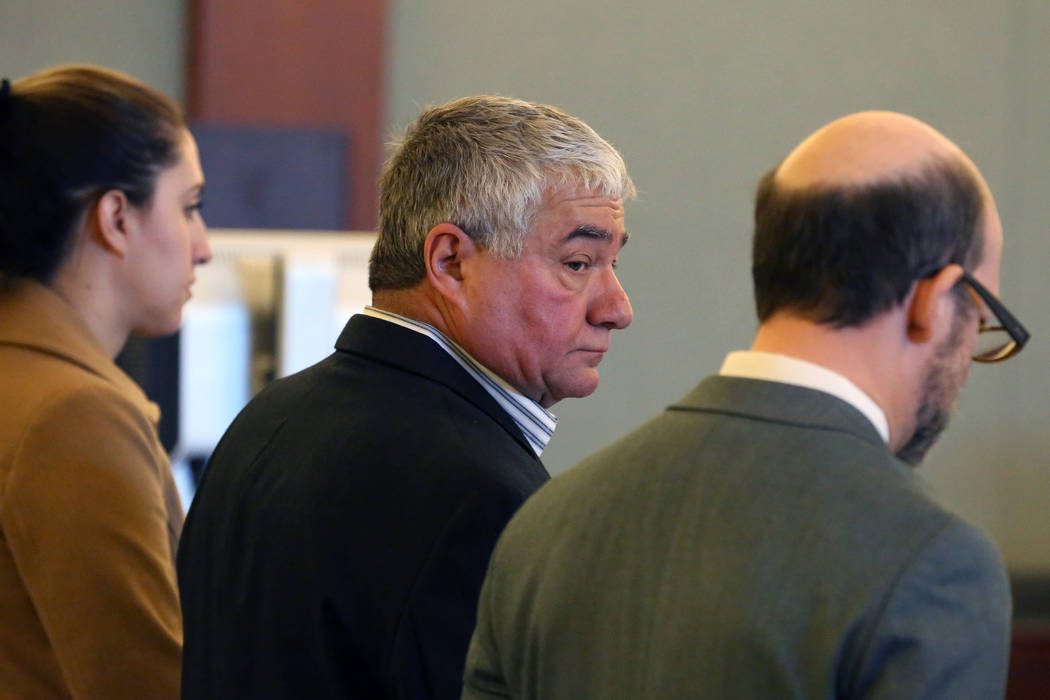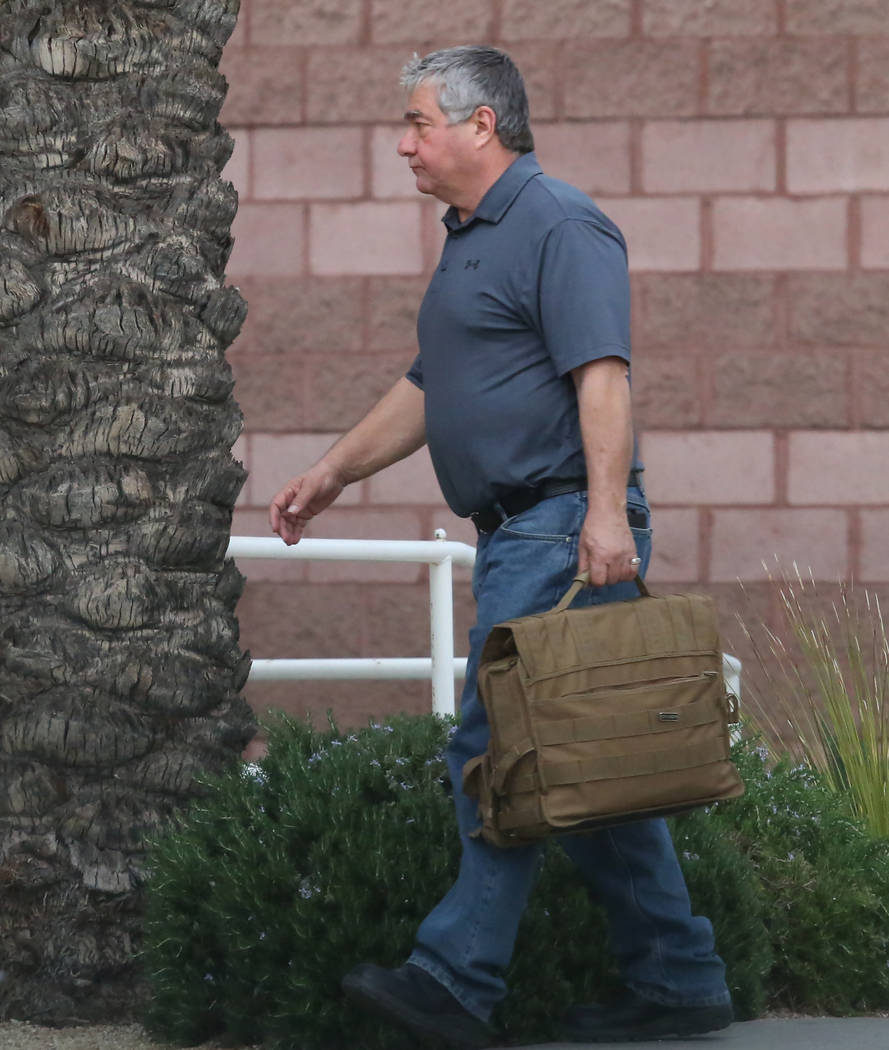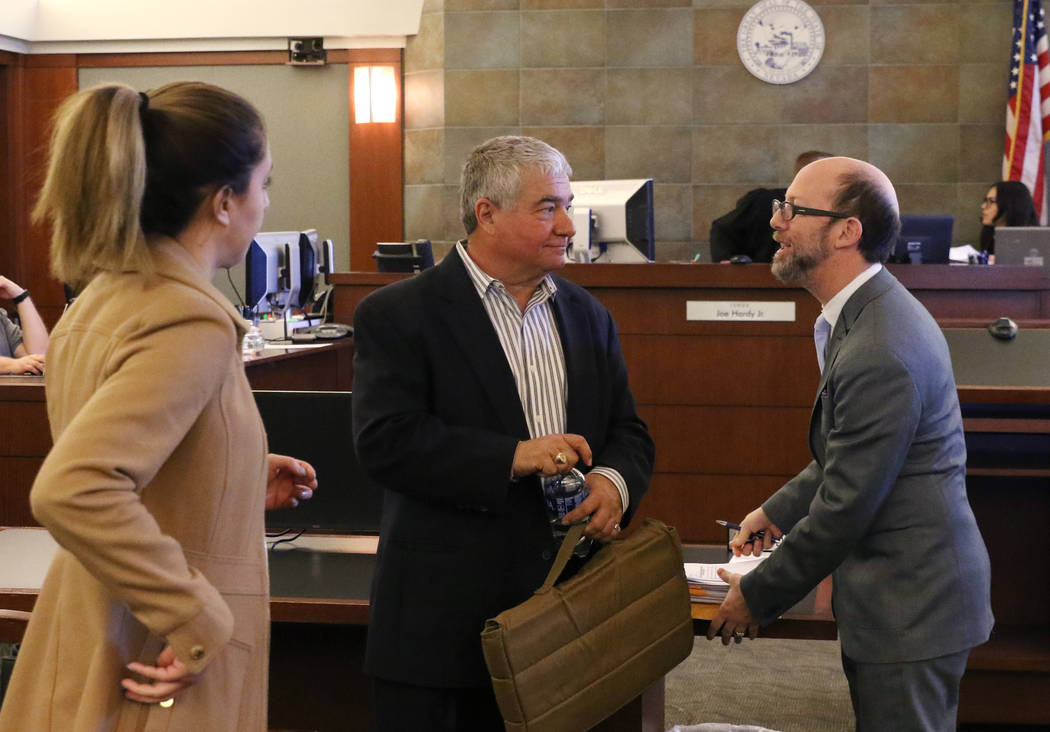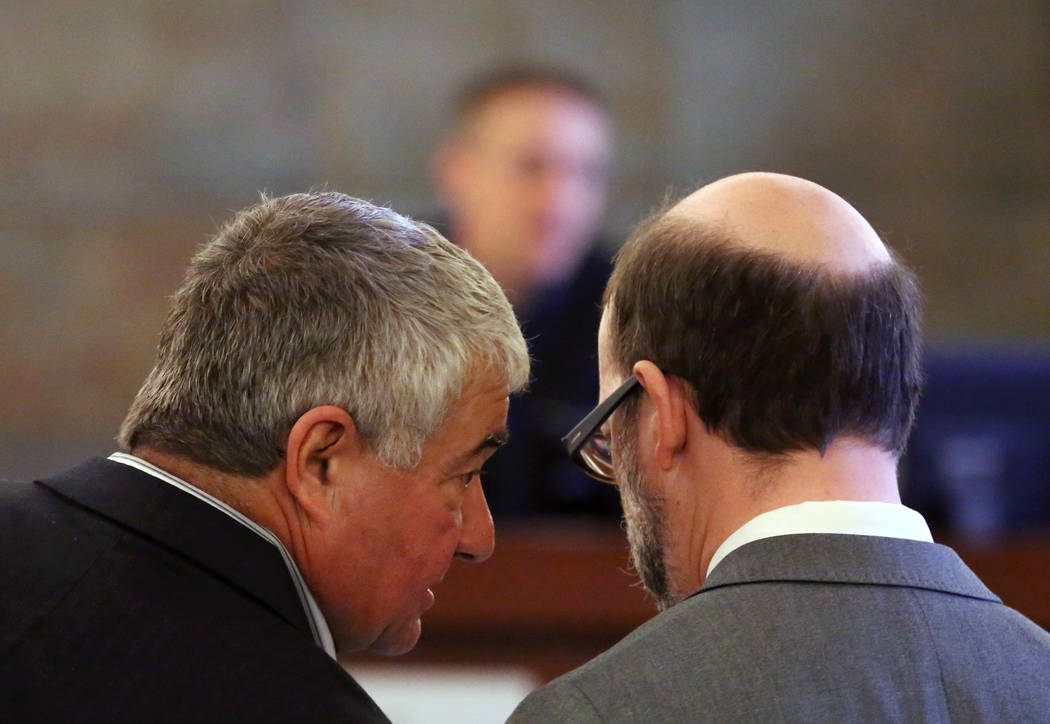Constable reform on tap after Review-Journal investigation
Nevada lawmakers want to reform the way constables pay their deputies after a Review-Journal investigation uncovered Henderson Constable Earl Mitchell allegedly inflating deputy pay and expenses and pocketing the difference.
Senate Bill 462 would require county commissioners to approve the compensation and appointment of deputies for townships that are organized under a county enterprise fund.
“In the past, constable offices operated almost entirely on their own with minimal County supervision,” Sen. David Parks, D-Las Vegas, who heads the Committee on Government Affairs that sponsored the legislation, wrote in an email exchange. “Revised policies and procedures implemented by Clark County management over recent years has vastly improved the financial operation and supervision of constable offices.”
In March 2018, the Review-Journal published a story showing Mitchell was writing himself checks worth tens of thousands of dollars, withdrawing public funds at casinos and charging meals, travel and other items to his township account. After the story, police served search warrants on Mitchell’s home and office. A grand jury indicted him in December on five counts of theft and public misconduct.
Mitchell dropped his re-election bid the day the story ran, and the criminal case is winding its way through the courts.
Mitchell’s attorney Dayvid Figler said the need to clarify the law shows that Mitchell should not have been criminally charged.
“This just admits that the relationship between constables and various counties is ill defined,” he said. “It was reckless to go to the process of criminal prosecution instead of working it out another way.”
The bill, which passed the Senate on Tuesday night, also requires constables in townships of more than 100,000 to be certified by the Peace Officer Standards and Training commission, addressing a controversy over North Las Vegas Constable Robert Eliason’s inability to get the police certification.
“SB 462 further provides that a constable forfeits his or her office if he or she fails to obtain or maintain the required certification as a category I or category II peace officer,” Parks wrote.
But the bill would not immediately impact Eliason because he was re-elected last year and it would apply only to future constables, Parks wrote. Eliason could not be reached for comment.
The bill will also make it easier for constables who spot residents with out-of-state plates to collect a $100 fee the court imposes as part of the penalty. Currently, there is no mechanism to collect the fee, but the bill requires courts to collect the fees and pass the money on to constable’s offices.
“Payment is only made after a court has made a finding of guilt and collected the fine,” Parks wrote.
Contact Arthur Kane at akane@reviewjournal.com. Follow @ArthurMKane on Twitter.


























